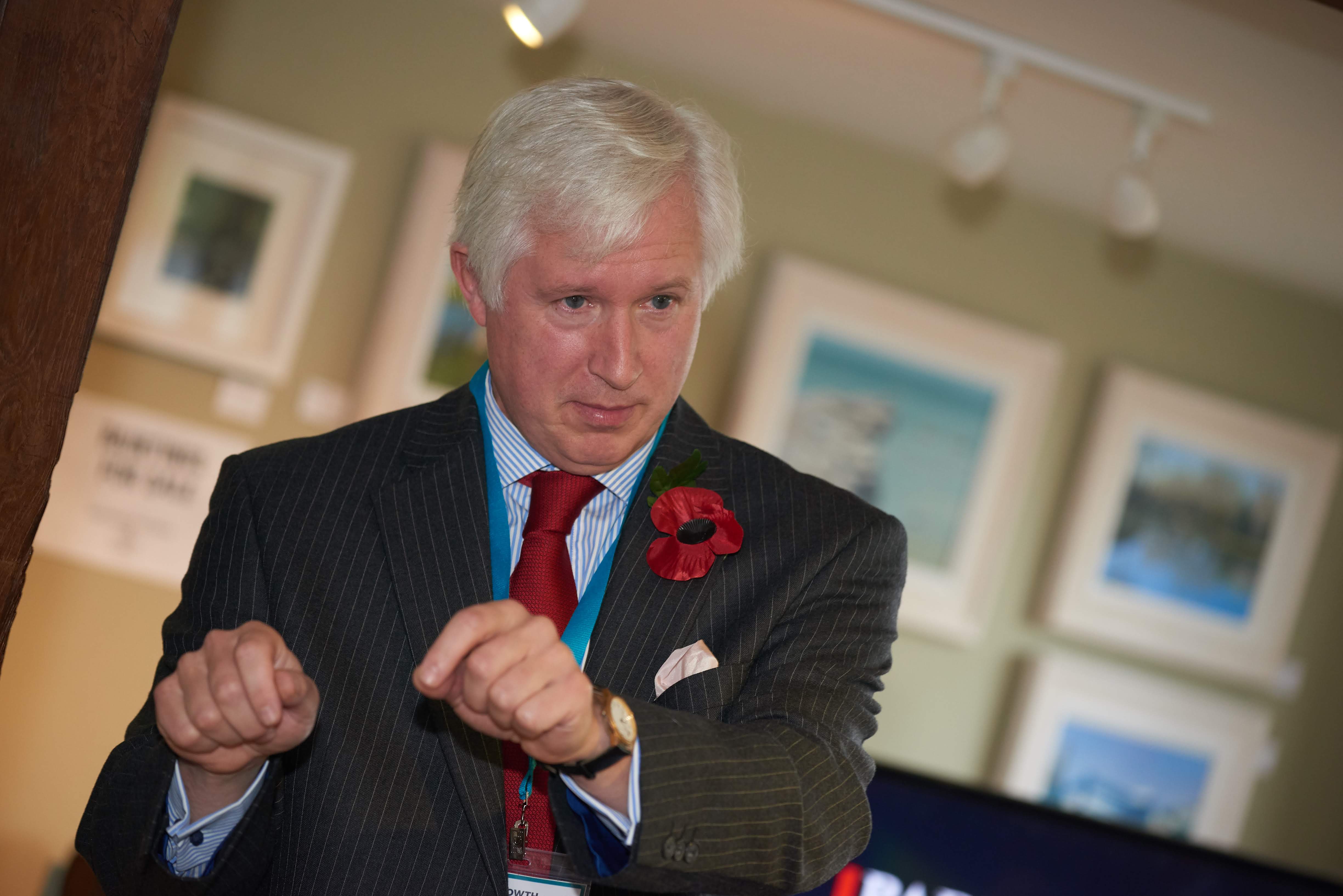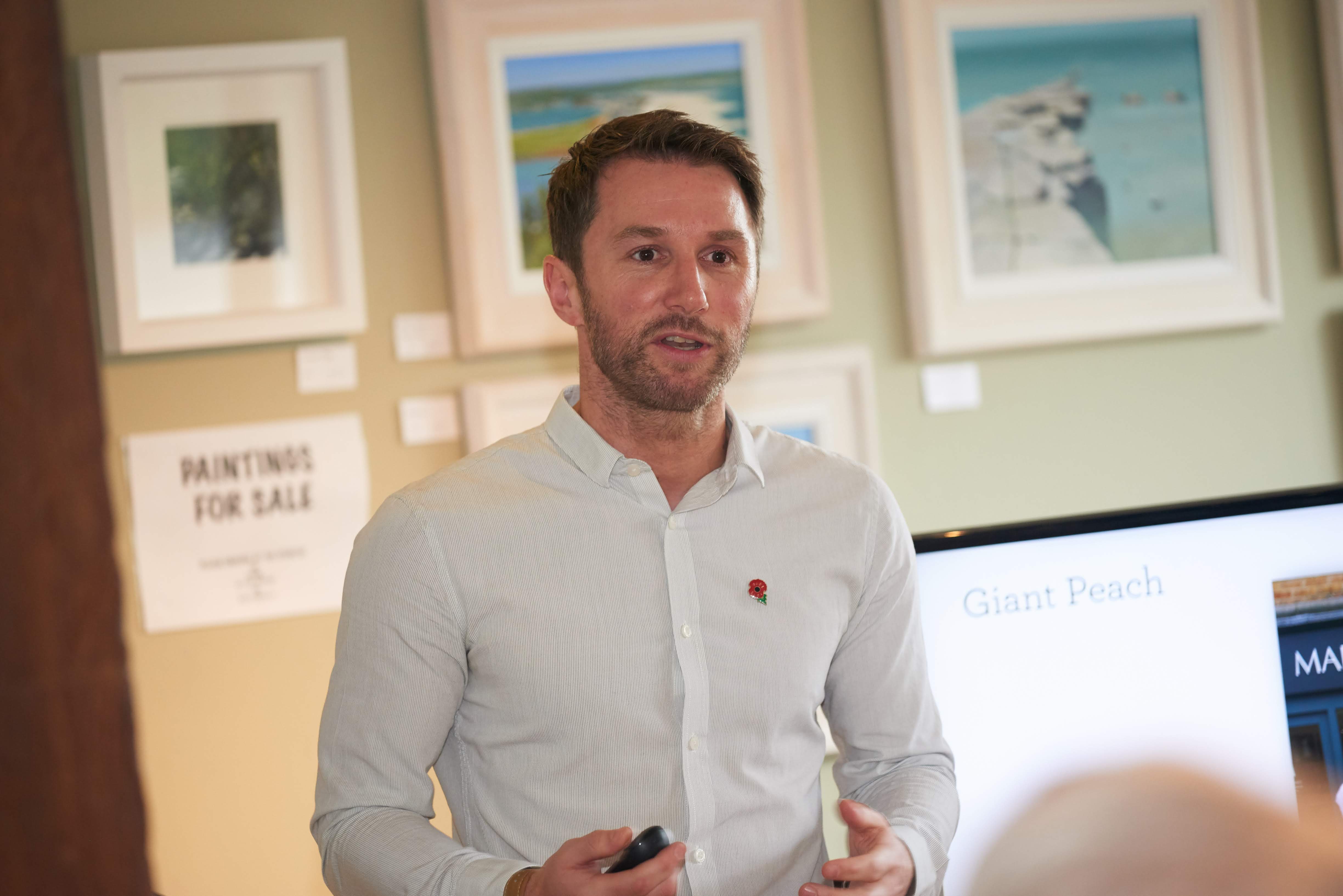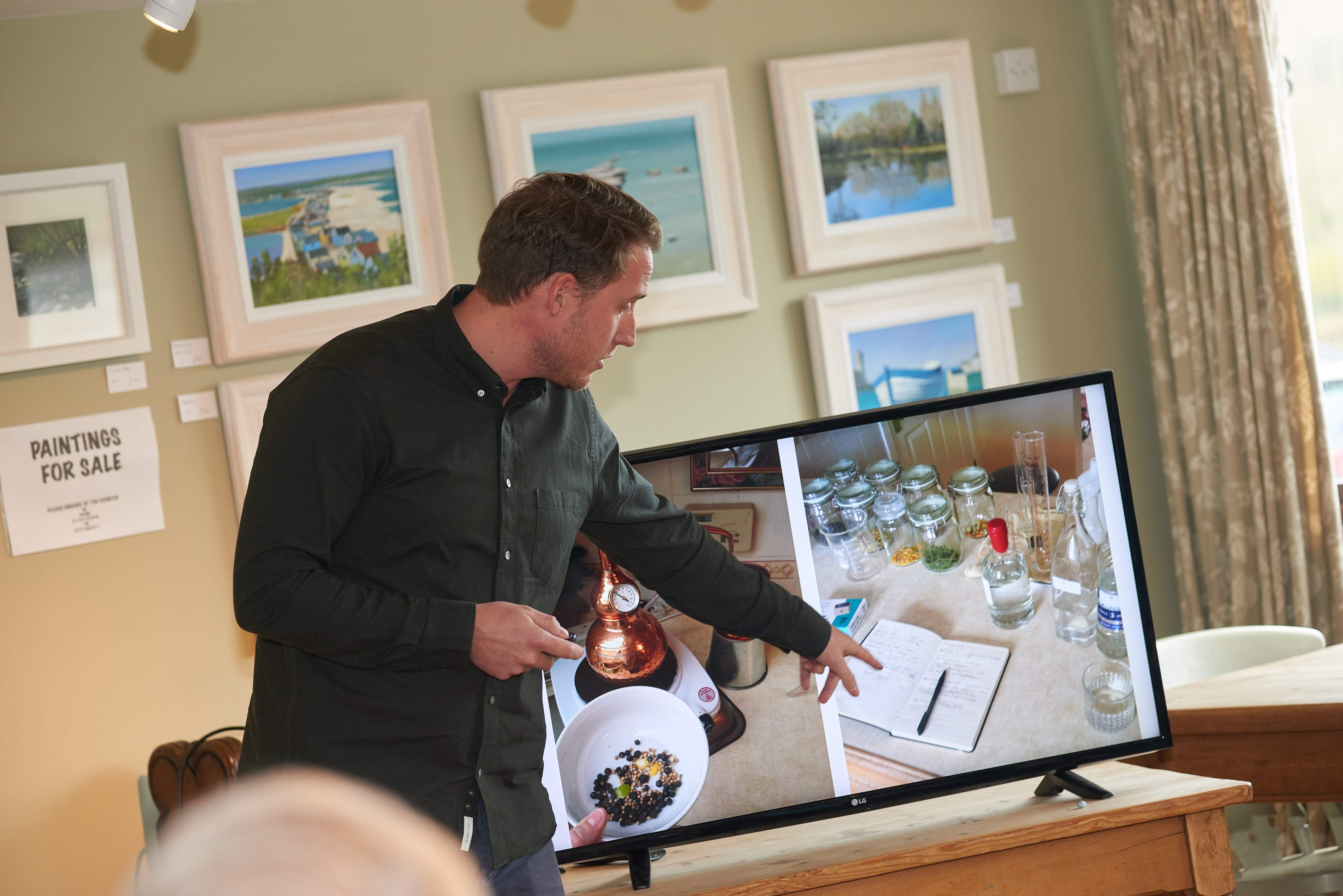High Growth Collective: Brand Protection, Going Green, and a Journey into Gin!
November’s High Growth Collective (HGC) welcomed three inspiring speakers who shared loads of their practical tips and knowledge.
There was expert legal advice for protecting your brand both now and in the future, simple tips for making a huge impact on the green credentials of your business and advice for creating a brand, and a life, that you love! Notebooks ready!
Brand Protection: register it or regret it
Mark Lello, Solicitor & Associate Trade Mark Attorney at Parker Bullen

Most of us know the importance of getting your brand right, but we don’t always know about the legal details that will help protect it for the future. A show of hands in the audience revealed that very few people had registered their brand officially.
Luckily, we had Mark come along to share his top tips for brand protection, explain why it is important and crucially – what can go wrong if you don’t! It’s safe to say that everyone walked away with a lot of new knowledge and a few more tasks added to their to-do lists!
So, what exactly is a brand that’s protected by law?
It seems like an easy question, but it’s a lot more complex than you might think!
Here’s the legal definition: A brand is capable of something that can distinguish the goods and services of one origin from another.
The wording relates to the origin, so a registered brand is defined by both what it is AND who owns it.
Mark’s top tips:
1. Get your brand registered as soon as you can!
The EU has set the threshold low for registering a brand, but this could all change with Brexit!
You need to register your trademark with a certain ‘class’ and each one is randomly set, so you need to think about future uses too. *Hint* You might want to hire a professional to help you navigate legalities and ensure that you futureproof your brand!
The trademark lasts for ten years and you can renew it indefinitely. The only thing you have to do is use it in some way!
2. Don’t be like Hoover!
If you have a brand, make sure that you use it properly AND insist that everyone else does too. Incorrectly using your brand can completely diminish its value, that’s why many companies have ‘brand guidelines’ (and no, it’s not just to create more work for management!).
One of the worst things that can happen to your brand is that it becomes as generic as Hoover! And never use your trademark as a verb… like what happened to Google!
3. Don’t just register your company name!
You can have a registered company name, brand name and a trademark. Make sure you protect them all! One of Mark’s clients unfortunately learned this the hard way. To save a £250 fee the company dropped the registration of one of their names and a competitor bought it, along with the accompanying domain name. Proving that someone has registered a brand in bad faith is not easy to prove. Thankfully, Mark was able to help them get it back, but they were faced with £10,000 in fees. Be warned!
A quick Q&A revealed some more interesting facts, such as the difference between a ‘trademark’ and a ‘Registered Trademark’. A certain amount of goodwill is built-up around a non-registered trademark, but if challenged, you have to be able to prove that you have the right to use it. When you register your trademark, you have legal protection.
Another interesting fact was about the ™ symbol you often see. What this does is alert those ‘in the know’ to the fact that your trademark isn’t in fact registered!
The ® symbol, on the other hand, is used worldwide to show that the trademark has been registered somewhere.
As Mark said in his presentation, you can never learn enough about branding!
Easy, peasy green business!
James Read, founder of digital agency Giant Peach

While facing a life-changing experience involving the health of his son, our founder James decided that he wanted to do business that made a difference in the world. From working with clients who want to change the world, influencing existing clients to be more sustainable and how the business operates, doing good is what Giant Peach is all about. In fact, this was celebrated just last month when we were awarded the prize for Absolute Carbon Reduction Award at The Planet Mark awards, for curbing our carbon usage by a massive 41% in just one year!
Being a sustainable business is good for business
As it turns out, there is a competitive advantage to thinking more sustainably. Marketing Week research revealed that companies with a ‘power of purpose’ are outperforming competitors by 206%. With ‘single-use’ being the Collins Dictionary Word of the Year 2018, it’s clear that consumers care and want to buy from brands who reflect their ideals.
Going green doesn’t have to be hard!
Anyone can make a difference, you just have to start by focussing on the little things. Look around your office and find the things that can be improved, they all add up!
Here are some top tips, with examples of what we’ve done at Giant Peach:
1. Recycle and reuse
As a digital agency, our paper use is not a big issue, but the batteries that power wireless computer mice are! We made a simple change by switching to rechargeable batteries. 50% of people admit to putting batteries in the bin, but this simple switch reduces toxic chemicals leeching into landfill and contaminating the environment. The council don’t collect our general recycling (cardboard, glass, plastic), so the Peaches take it in turns delivering it to the recycling centre.
2. Donate what you no longer need
We donate our old computer hardware and tablets to an amazing charity called Rebuilding Sri Lanka, who reuse them to bring digital education opportunities to disadvantaged young people who otherwise wouldn’t have great career opportunities. Doing this truly changes lives!
3. Work with sustainable suppliers
Coffee is an essential ingredient in our business, so we make sure we buy sustainably! Ethical Superstore is our go to supplier for delicious Fair Trade & organic tea and coffee. We get our cleaning products from Big Green Smile, a fantastic company who supply every non-toxic, eco-friendly product you could need. And our amazing printing company, Park Lane Press use a waterless printing technique that has less impact on the environment and increases image quality!
4. Stop the business card madness!
We reduce our paper use by printing blank business cards – people can write their own contact details and names on to them! Printed on recycled card too!
5. Look for renewable energy sources
We use UK based servers powered by 100% by renewable energy.
6. Spread the word!
We try to inspire the next generation with our message of sustainability too, by working with local school kids. Our previous inspirational day included having the students in the office for a day and tasking them with creating an environmentally sustainable ‘eco app’. They get to workshop their ideas by creating wireframes, developing marketing campaigns, creating branding and finally pitching to the Peaches. Some of the ideas they came up with are brilliant!
As James says, we’re not perfect, but we’re on a journey to make the world a better place!
That’s the Spirit! The Conker Spirit story
Rupert Holloway, founder of Conker Spirit, Dorset’s first gin distillery

From finding himself in the uninspiring position of being a Chartered Surveyor in a recession to establishing Dorset’s first gin distillery and now selling over 1000 bottles a week, Rupert’s story shows how it is possible to change your life and build a successful brand that gives you a life that you love! Without any experience in marketing, sales…or even distilling gin, the Conker Spirit journey was built on following gut instincts and ignoring the rulebook! And this is part of what makes the brand so unique.
Now three and a half years into making sales, Rupert told us about how he found a new direction in his life, and what he has learned about business along the way.
Making the break for freedom
Working in an unfulfilling job can make it hard to find your ‘lightbulb’ moment needed to make a change. Rupert learned that he needed to do two things to find his business idea:
- Rediscover his creativity – this isn’t easy in our society, but you must be prepared to follow what excites you and be prepared to make mistakes!
- Look for gaps in the market, in emerging markets!
Once he found his idea, and accidentally came up with a brand name with the help of his wife, it was just a matter of going for it! He spent a year developing his gin recipe with special Dorset botanicals, then handed in his notice!
How to create your brand
Just get started! This is Rupert’s top tip. Don’t wait until you have a ‘proper’ brand before you get started, start putting your story out there and inviting people along for the journey:
- Transparency is part of the Conker Spirit brand. Their social media presence is open, personal and honest, featuring behind the scenes photographs of the team, the production and even Rupert’s children getting involved!
- Reinforce your why. People don’t buy what you do, they buy why you do it. Conker Spirit is about locally made gin from a business with integrity.
- Your brand is a voice. Rupert’s blog doesn’t just talk about gin, he writes about the lifestyle the business has brought him and gives advice to others who want to build a life that suits them, too.
Rupert shared his other top tips for success:
1. De-value money
This involves a massive mindset shift. You have to spend money to grow a business, so if you place too much value on it, it will be too hard.
2. There is always money for good ideas
Having no money makes you work harder to validate your ideas, and people want to fund good ideas.
3. Anything can be learned – knowledge is no longer a barrier
All you need is a phone with an internet connection and you can learn anything. Including how to distil gin!
4. Lean in – or you’ll be pushed over
Always be ready to move forward and think about the next move your business can make.
5. Samples, samples, samples…
Whatever your business is, you have to give away something for free to get people interested. It could be sample bottles of gin or helpful blog posts on your website.
6. Have fun!
You’re most creative when pursuing the things that excite and inspire you – fun builds your business.
7. You can only join up the dots looking back – be a ‘yes man’
Life doesn’t always follow a straight path and it’s hard to see where decisions are leading sometimes, but often when you look back, you see that it all made sense. Rupert’s first biology degree might not have been related to his initial career as a Chartered Surveyor, but it helped him understand the process for making delicious gin!
8. Don’t overthink it – business is just a string of human decisions
It can seem like successful business people know something you don’t, but really, it’s built on making gut decisions and networking!
9. The time is NOW!
With so many great resources available online, there has never been a better time to start your own business!
If you’d like to speak at or come along to a future High Growth Collective, get yourself on our email list and get inspired.